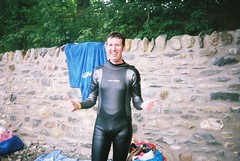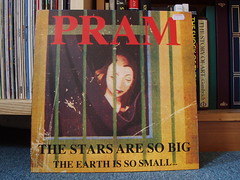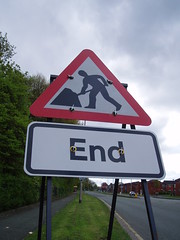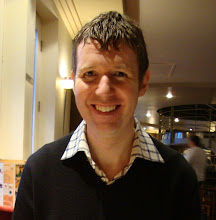Saturday, May 29, 2010
OSS Derwentwater Swimming Weekend
Last weekend I went up to Derwentwater for a couple of open water events run by the Outdoor Swimming Society as part of the Keswick Mountain Festival.
Although it was only two days, it was a big weekend for me. Saturday morning saw a number of "swim clinics" taking place on the lakeshore - I'd signed up for the beginner's session, which (aside from the 9am start!) was great for me: I've swum twice this year locally at Hatchmere lake (my wetsuit proved absolutely essential in water reportedly at 15C), but I've struggled at times to translate my pool experience into the great outdoors.
During the session the two coaches Neil Bowers and Barry Jamieson had some excellent advice for cold water acclimatisation and swimming technique, which we were also able to practice during the session. Neil emphasised that the physiological reaction on entering cold water (i.e. gasping for breath) never goes away, and so the best way to acclimatise is to take some time getting used to the water before starting to swim, rather than zooming off as fast as possible. Splashing water on your face and neck can also help, as can putting your face into the water and breathing out slowly a few times (also a good opportunity to check the fit of your goggles).
Neil then introduced The Three R's of outdoor swimming: relaxation, rotation and rhythm. A relaxed state of mind means your swimming will be more comfortable; rotation of the body while swimming crawl provides a more efficient swimming style; and getting into a rhythm helps you to sustain a steady pace through the water. He also covered bilateral breathing (I feel smug since I do that anyway) and "sighting" (i.e. looking up periodically to check your course while maintaining your stroke), but The Three R's made the biggest impression on me and by the end of the (hugely enjoyable) session I felt much more confident about tackling a bigger swim.
That opportunity came on Sunday with the OSS mass swim on Sunday and 250 swimmers gathered back on the lakeshore. The original plan to swim around a small island in the lake had been changed at the last minute due to low water levels and the risk of blue-green algae blooms; the course in the end was a circuit around two yellow buoys (presumably left over from the earlier triathlon).
It was a shame not to be able to do the more scenic route around the island (and the buoys seemed to make some people think it was a race, with less confident swimmers like myself unable to stay out of the way of the wannabe triathletes). But it was also a reminder that swimming outdoors means respecting the conditions on the day, and I still had plenty of memorable moments: chatting to people before and after the swim; the sunshine and blue sky; seeing the lake bed a few feet below me through hazy greenish water; feeling soft spongey weed beneath bare feet when entering and exiting the lake; a trio of ducks flying low overhead as I turned to breath; and the whole "wetsuit soup" of swimmers having to stop for a few minutes mid-swim while a tourist boat cut across the course.
In the end I managed four circuits swimming a combination of breast stroke and front crawl; the swimming was still not as easy as I'd liked but worked best when I remembered my Three R's from the previous day and managed to relax, rotate and enjoy myself. And I felt a little emotional being helped from the water at the end by the OSS volunteers, including founder Kate Rew.
That afternoon I went to Kate's Q&A session where she talked about "wild swimming". The audience was quite small in contrast to the huge numbers taking part in the earlier swimming event, but I enjoyed hearing her talk about her experiences of outdoor swimming and her inspiration in setting up the OSS. (To get a taste you can see a short film with Kate on the Guardian website about Swimming in Byron Country.) For me, swimming outdoors is as much about experiencing the world in a different way to normal everyday life - feeling the cold water, being able to see the sky and trees - and it was nice to be reminded of that too.
(With all that going on I didn't do any walking while I was in Keswick - unless you count going between the town, the festival site and the lake. But I did visit the Puzzling Place, which has some genuinely fascinating sensory illusions - mainly optical, but don't miss the "anti-gravity room" if you ever go there - and took a boat trip around Derwentwater.)
So, the last few days have been a bit of a comedown from all that excitement. I'm looking forward to the next outdoor swim next weekend, but this weekend I'm having a bit of a break. In the meantime my pictures from the weekend are on Flickr (got them back from Boots yesterday!) ... and finally I'd also like to recommend the Cartwheel Guest House in Keswick - it's a really nice B&B near the centre of town, but owners Tina and Bernie are great people and went above and beyond in making my stay really enjoyable. And of course a big thank you to all the OSS volunteers who worked to make the swim clinics and the mass swim happen for the rest of us to enjoy.
Happy swimming!
Monday, May 3, 2010
May Bank Holiday: banana loaf, records and rain
I've had quite a nice May Bank Holiday Monday, in spite of the fact that a) it's been a bit on the chilly side, and b) that apparently I single-handedly caused hours of rain in the afternoon simply by hanging out my wet sheets in the yard (a kind of British Summertime voodoo).
After running this morning I decided I would finally make a banana loaf using the over-ripe bananas that I've been uh "saving" (along with some out-of-date almonds that I found in the cupboard). It worked out really well - a big, heavy four-banana breeze-block of a cake. It's nice and tasty (even if it doesn't count as one of my five-a-day).
Also now that I have my records arranged in some proper shelves rather than a couple of old boxes I've been listening to a few that I'd forgotten about - including Massive Attack's "Protection" and "The Stars Are So Big, The Earth Is So Small ... Stay As You Are" by experimental (i.e. probably unlistenable for most of you) 1990's band Pram. I really like the cover:
So all in all it's been a very pleasant - if somewhat damp - day. Fingers crossed for better weather tomorrow when I'm in Manchester!
Job done
In their 2001 track "Harder Better Faster Stronger", Daft Punk suggested that "work is never over" - in spite of this, I've just finished six months working as a contract programmer. It's been good: interesting, educational, lucrative and fun, and now I've finished it seems appropriate to reflect on some of what I learned from the experience.
Perhaps the biggest difference between this and my previous working life was that this time I was telecommuting i.e. working from home. This was possible because I was developing essentially stand-alone software projects, but before I began I was concerned about what home working would be like: basically, could I handle the isolation and the temptations to - oh, I don't know, wander off and do the laundry instead?
I found some relevant advice in a chapter from Miles Burke's book The Principles of Successful Freelancing. For me the most useful suggestions were:
- Set up home office space: this was my spare bedroom with my old desktop computer (upgraded to dual-boot into Ubuntu Linux). Having a dedicated space (and machine) made it easier to start work and stay focused, by providing a physical environment that I associated with working.
- Keep rigorous track of the hours you've worked: Miles' book recommended a bunch of online tools but I found that a simple spreadsheet worked fine for me. Keeping track helped me stay focused and disciplined - when I was on work time then I really did do work, and when I'd finished I knew that I'd really worked my full hours that week.
- Have a work schedule set up ahead of time: this was especially useful at the start as I worked half-time and wanted to fit other commitments in around my work. I did deviate from the schedule sometimes, but it was good to have something to deviate from - and it also meant that for example I never felt I had to work weekends to catch up.
It turned out that I didn't really suffer from a sense of isolation, possibly because my collaborators were very good at staying in email contact. I also made visits to the physical workplace every few weeks, and while the travelling was often tedious (the one-hour stops at Birmingham New Street station will not be missed), contact with the project collaborators, end users and other real people more than made up for it.
Another major difference for me was working exclusively on one "closed" project at a time (I'd previously been used to juggling a disparate mixture of concurrent open-ended and cyclical projects). The resulting narrow focus gave me a sense of clarity that I'd often missed in the past; though at the same time, there was no escape if the going got tough - I just had to plow through it. Also as a contractor I felt less personal attachment to the actual finished code (although I remained deeply committed to doing the best job that I could), and less inclined to spend "work time" on learning about new stuff unless it contributed directly to the project.
Finally, I learnt a few things about being a contractor rather than a full employee that I wish I'd known beforehand - for example, since I used my own computing equipment I wished I'd negotiated some concessions for that, and I also hadn't realised I wasn't entitled to public or company holidays. Sometimes you pay to learn - at least I'll know what to check in future.
Overall though the experience was really good, both in terms of the actual work and also in terms of what I learned about myself. I feel more confident in my programming and in my ability to manage and deliver these time-bound projects. So while my time is now my own again I know there are aspects that I'll miss, but I'm also grateful to have had the opportunity while it lasted.
Subscribe to:
Comments (Atom)





